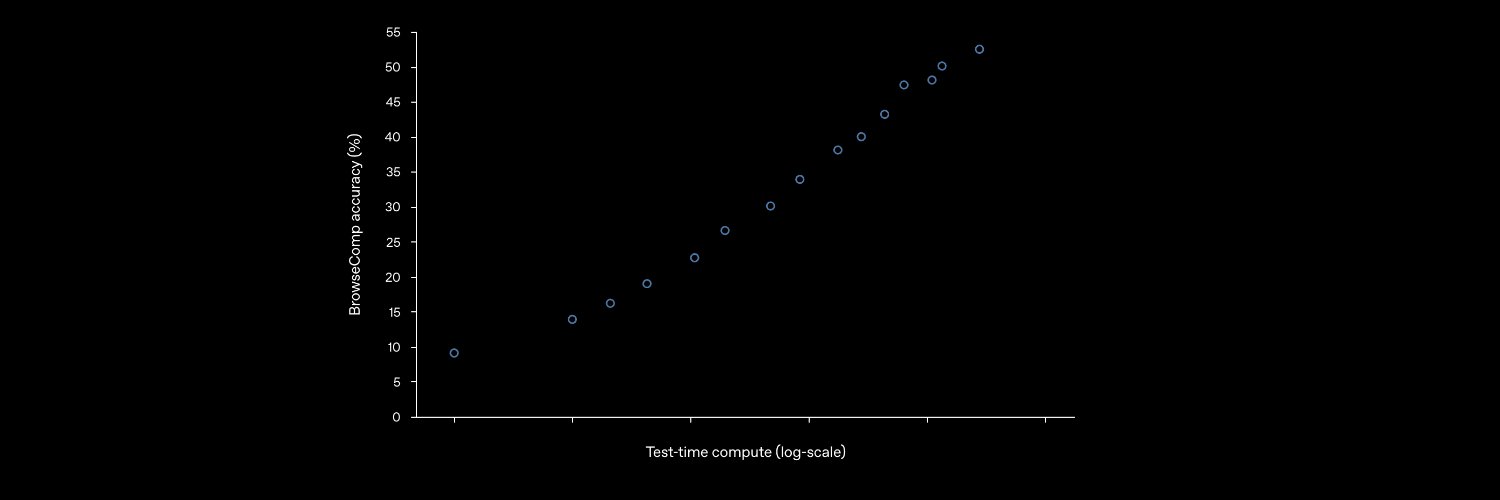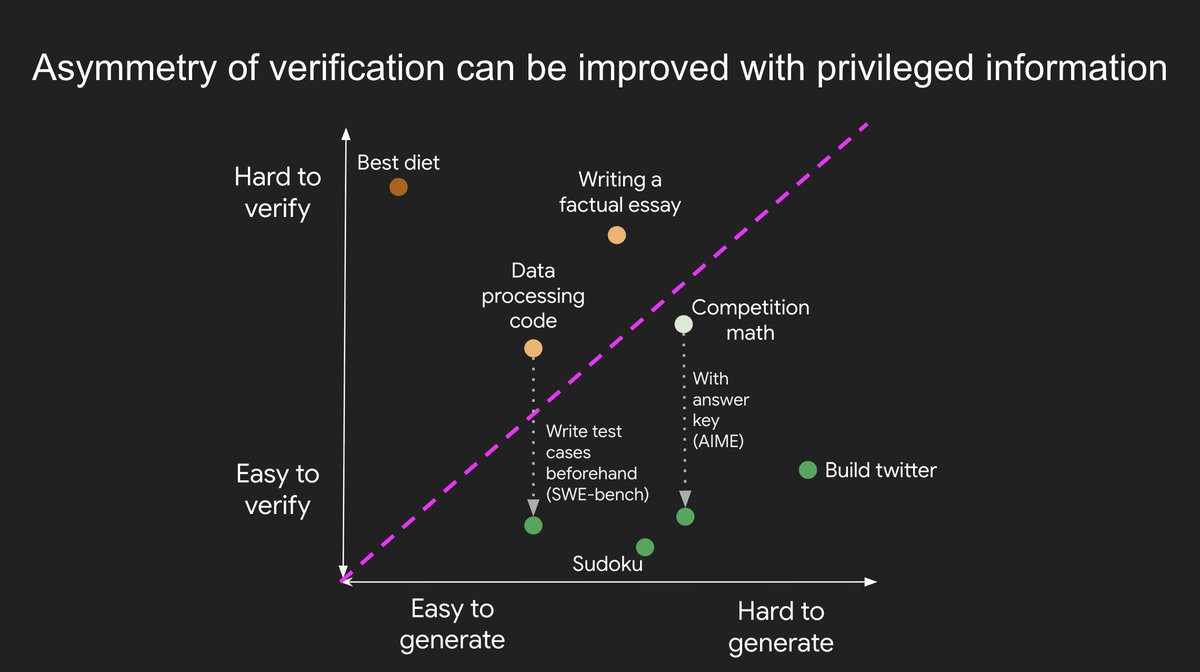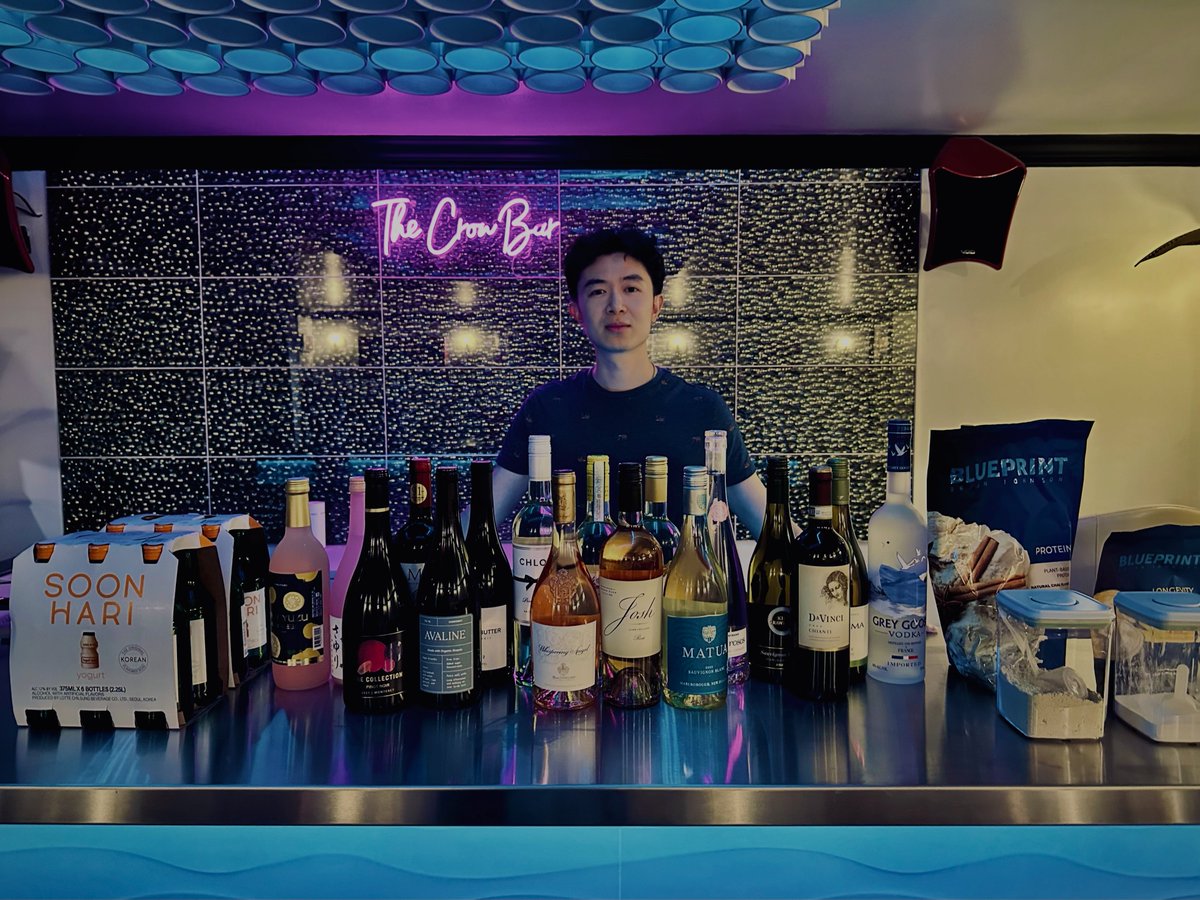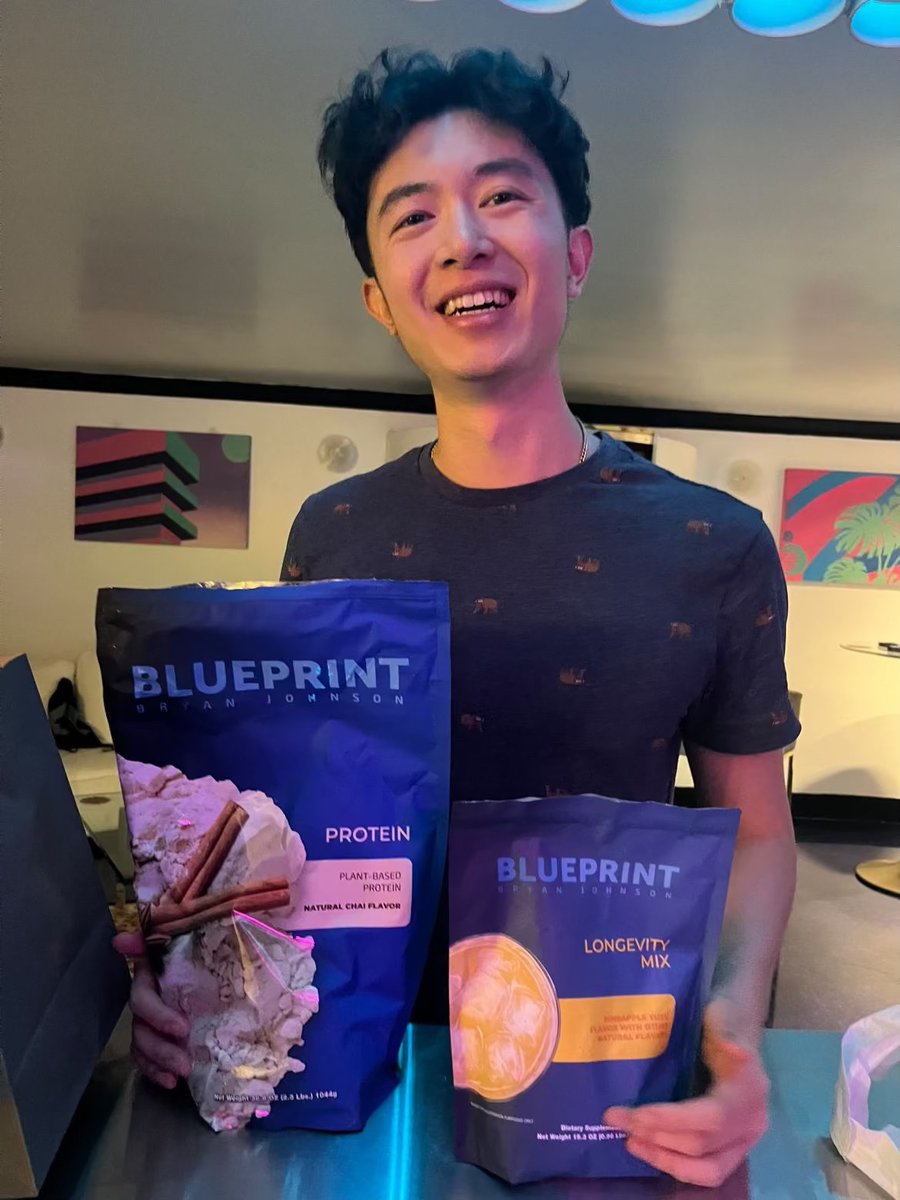
Jason Wei
@_jasonwei
ai researcher @openai
I would say that we are undoubtedly at AGI when AI can create a real, living unicorn. And no I don’t mean a $1B company you nerds, I mean a literal pink horse with a spiral horn. A paragon of scientific advancement in genetic engineering and cell programming. The stuff of…
The greatest contribution of human language is bootstrapping language model training
📣 Excited to share our real-world study of an LLM clinical copilot, a collab between @OpenAI and @PendaHealth. Across 39,849 live patient visits, clinicians with AI had a 16% relative reduction in diagnostic errors and a 13% reduction in treatment errors vs. those without. 🧵
Becoming an RL diehard in the past year and thinking about RL for most of my waking hours inadvertently taught me an important lesson about how to live my own life. One of the big concepts in RL is that you always want to be “on-policy”: instead of mimicking other people’s…
New blog post about asymmetry of verification and "verifier's law": jasonwei.net/blog/asymmetry… Asymmetry of verification–the idea that some tasks are much easier to verify than to solve–is becoming an important idea as we have RL that finally works generally. Great examples of…

Bryan Johnson longevity mix is the most popular drink at ragers in SF


We don’t have AI self-improves yet, and when we do it will be a game-changer. With more wisdom now compared to the GPT-4 days, it's obvious that it will not be a “fast takeoff”, but rather extremely gradual across many years, probably a decade. The first thing to know is that…
The most rewarding thing about working in the office on nights and weekends is not the actual work you get done, but the spontaneous conversations with other people who are always working. They’re the people who tend to do big things and will become your most successful friends
AI research is strange in that you spend a massive amount of compute on experiments to learn simple ideas that can be expressed in just a few sentences. Literally things like “training on A generalizes if you add B”, “X is a good way to design rewards”, or “the fact that method M…
My favorite thing an old OpenAI buddy of mine told me is, whenever he hears that someone is a “great AI researcher”, he just directly spends 5 minutes looking at that person‘s PRs and wandb runs. People can do all kinds of politics and optical shenanigans, but at the end of the…
One way of thinking about what AI will automate first is via the “description-execution gap”: how much harder is it to describe the task than to actually do it? Tasks with large description-execution gaps will be ripe for automation because it’s easy to create training data and…
RL environment specs are among the most consequential things we can write as AI researchers. A relatively short spec (e.g., <1000 words of instructions saying what problems to create and how to grade them) often gets expanded either by humans or via synthetic methods into…
It’s actually a good thing these days to have subtle grammar errors in your writing. It sprinkles on a clear human touch. You never want your reader questioning if what they’re reading was written or edited by chatgtp
Was attending a talk in a big lecture hall and the guy in front of me had the craziest conversation with ChatGPT for the whole hour about how to get his girlfriend back. Dozens of messages of pasting screenshots of text conversations to analyze tone of responses; whether to…
Check out some new roles at OpenAI for AI safety research!
OpenAI is hiring across our Safety Research teams! If you're interested in working on frontier AI safety, fill out this quick form to get in touch: jobs.ashbyhq.com/openai/form/oa… I cannot more strongly recommend working with this team. They are good people and incredible researchers.
The 80-20 rule happens often in AI research, where you get 80% of the payoff from the first 20% of the effort. But there is often also an inverse rule, where it’s actually the final 20% of that yields 80% of the payout. Some examples: 1. When your eval is already good in many…
A recent clarity that I gained is viewing AI research as a “max-performance domain”, which means that you can be world-class by being very good at only one part of your job. As long as you can create seminal impact (e.g., train the best model, start a new paradigm, or create…